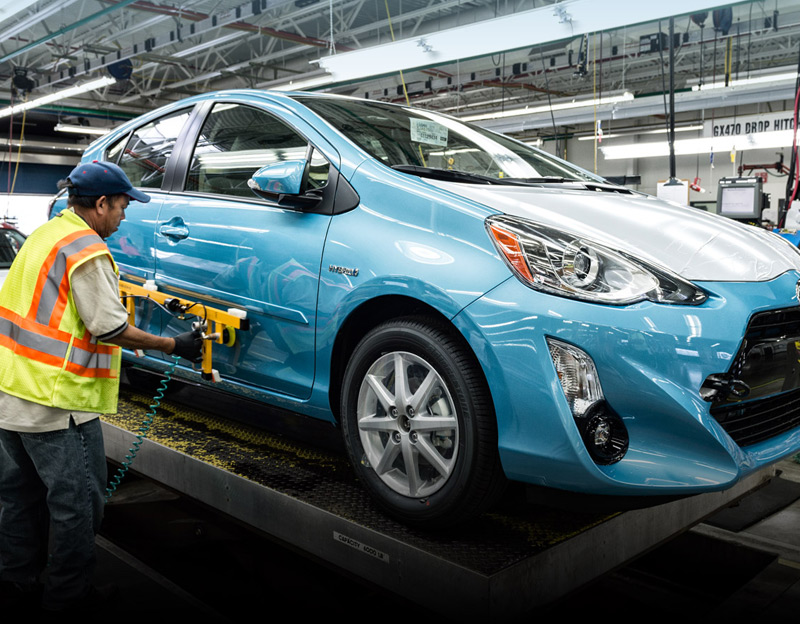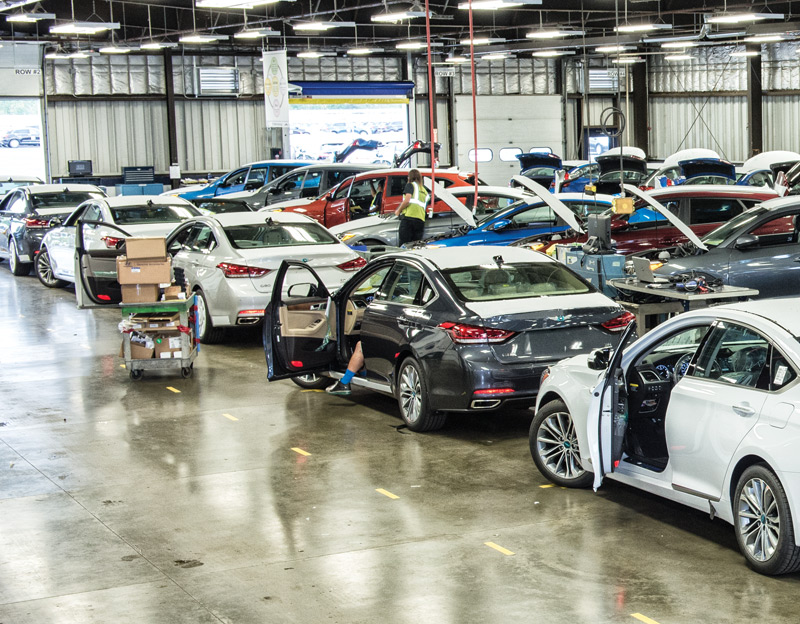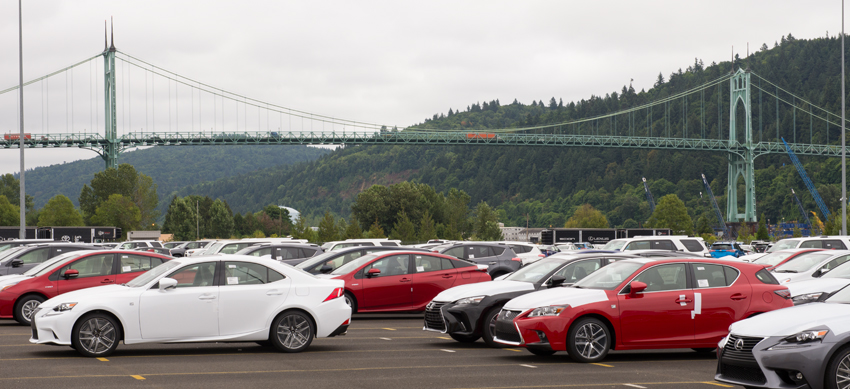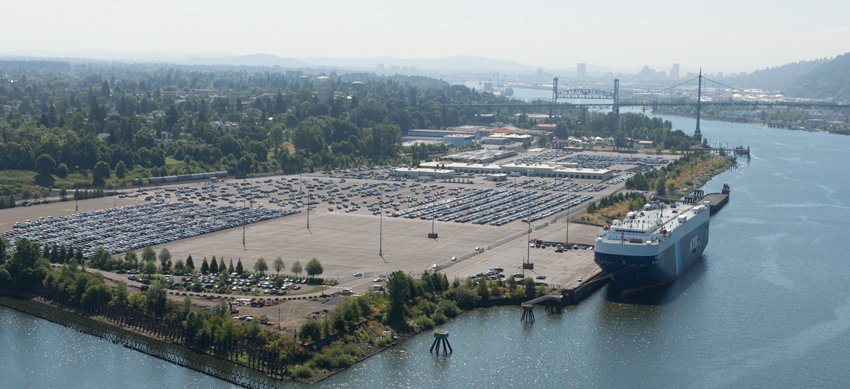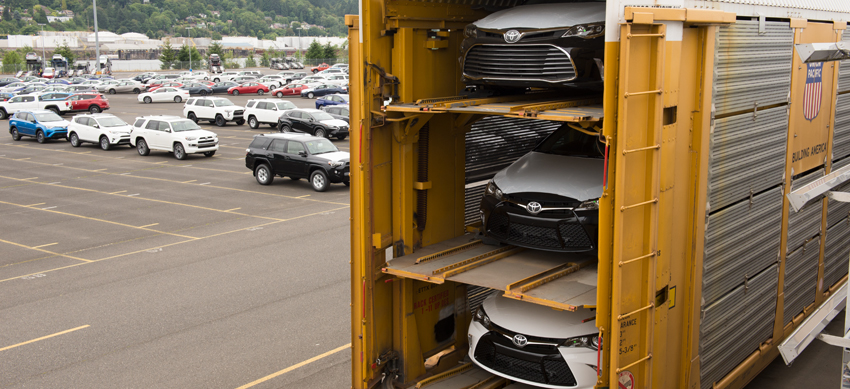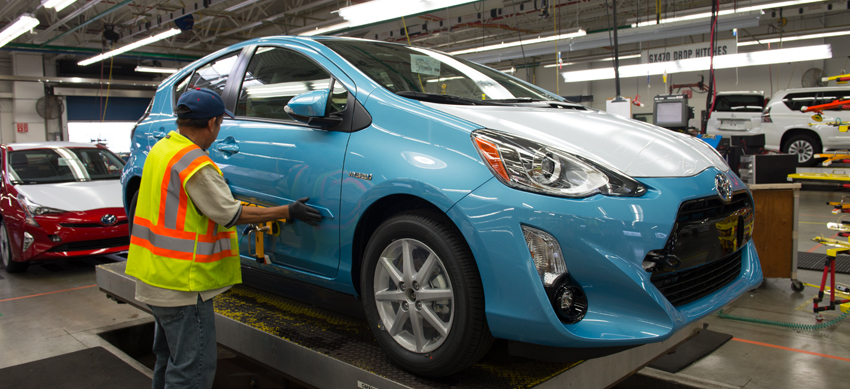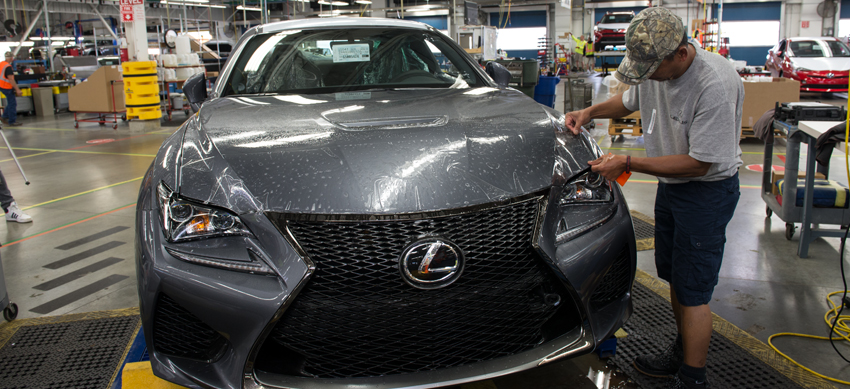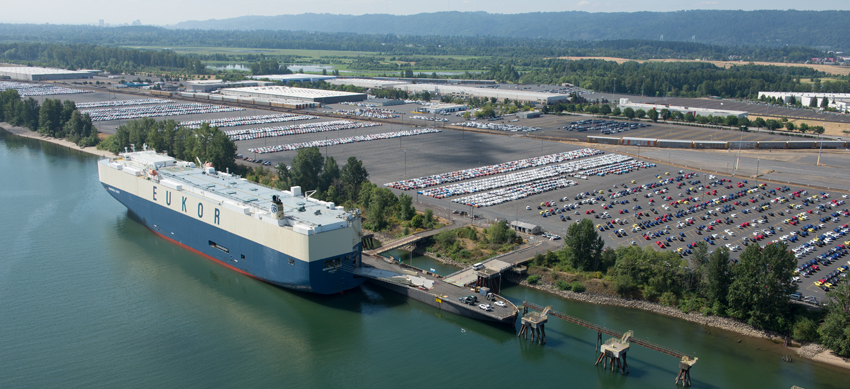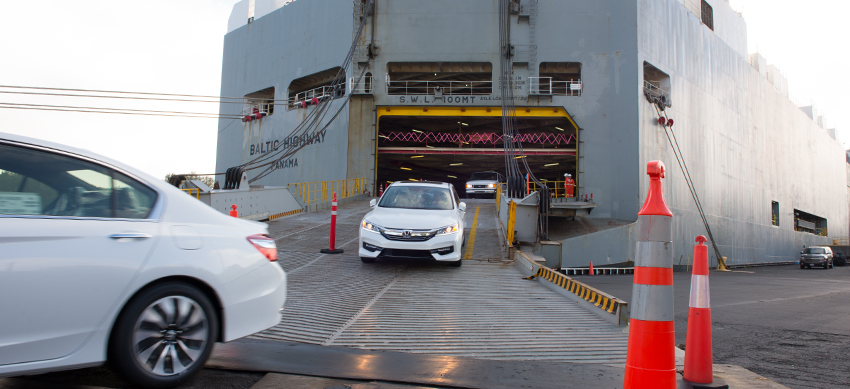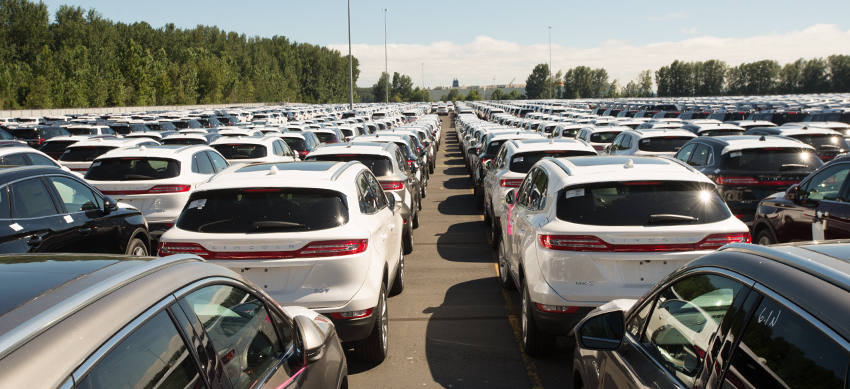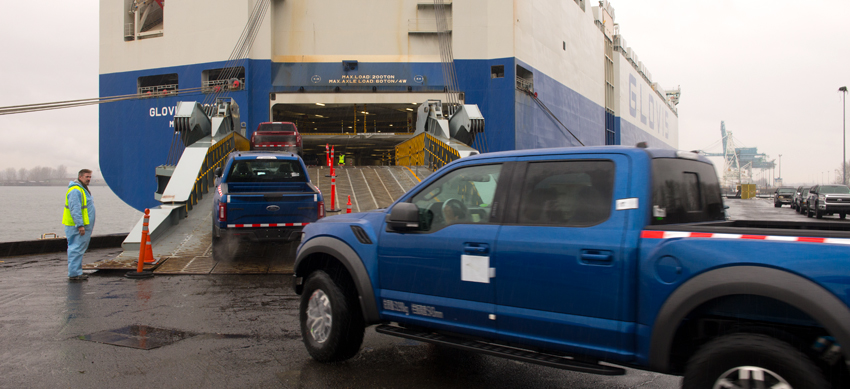we are your partner
We partner closely with you to develop custom shipping solutions that deliver big results to international or U.S. markets.
Our Marine Facilities
Please view our marine terminals brochure (PDF) to learn more about our capabilities and connections to the regional and national economy.
Contacts
Our Partnerships
We’ve been a premier auto gateway since 1953, when we started importing Volkswagens. Since then, more than 12 million vehicles have moved through the Port, including cars manufactured by Ford, General Motors, Honda, Hyundai, Stellantis and Toyota.
Our Partner: Harbor Industrial
Harbor Industrial operates Oregon Container Terminal at Terminal 6, managing both container and breakbulk operations.
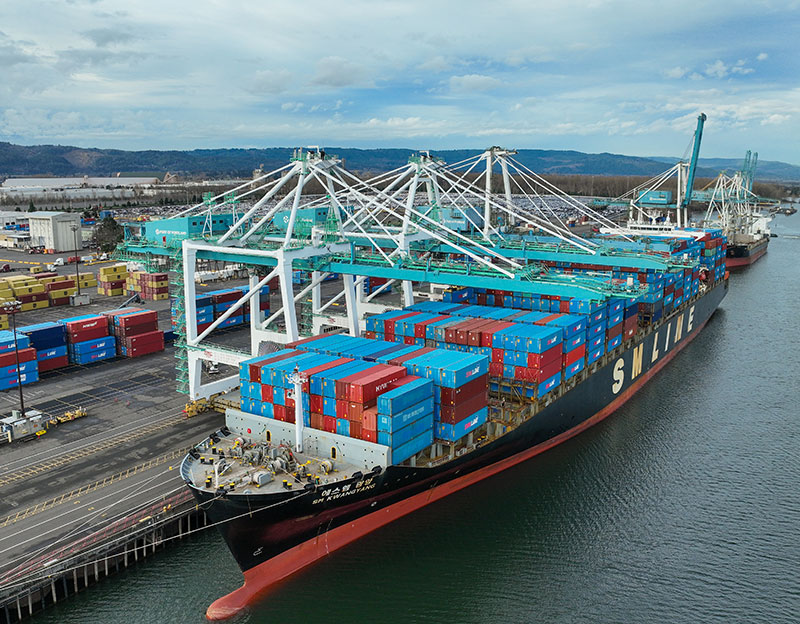
Our Partner: Toyota
Since 1971, Toyota has maintained an auto import and processing facility at our Terminal 4. This four-decade partnership has led to several facility expansions and improvements. Today, Toyota's Terminal 4 location handles more than 10,000 vehicles per month and was designated the first industrial facility to earn LEED Gold and Salmon Safe certifications.
Our Partner: Auto Warehousing Company (AWC)
In China, driving an American-made Lincoln is a sign you've made it. With China's growing middle class, demand for the shiny MKCs, Continentals and Navigators are also on the rise. That's translating into our strong partnership with Auto Warehousing Company, a global logistics and processing company that ships the vehicles from Terminal 6.
We're a premier auto gateway, ranking No. 1 on the U.S. West Coast for exports. Thousands of vehicles roll in and out of our terminals to foreign markets and from domestic manufacturers.
Watch this video to learn more about how we've become a leading auto distribution hub.
Containers
Everything from agricultural products to household goods can be shipped at Oregon Container Terminal, located at the Port’s Terminal 6. Cargo from the Pacific Northwest is often bound for Asia, while incoming goods are moved by truck and rail to customers across the region.
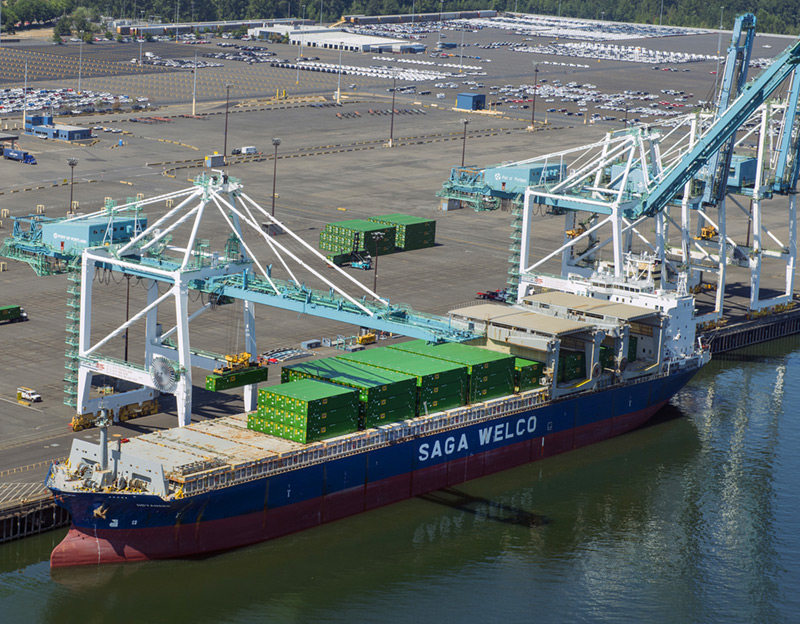
Oregon Container Terminal
Oregon Container Terminal handles imports and exports of containers and breakbulk at Terminal 6, a 419-acre, multiuse terminal with an on-dock rail yard. These operations are managed by Harbor Industrial.
Breakbulk
Our breakbulk and specialty cargo terminals are flexible, multi-product facilities well-served by a network of interstate freeways and direct rail service.
Breakbulk operations
Harbor Industrial manages breakbulk and container operations at Terminal 6, a 419-acre, multiuse terminal with an on-dock rail yard.
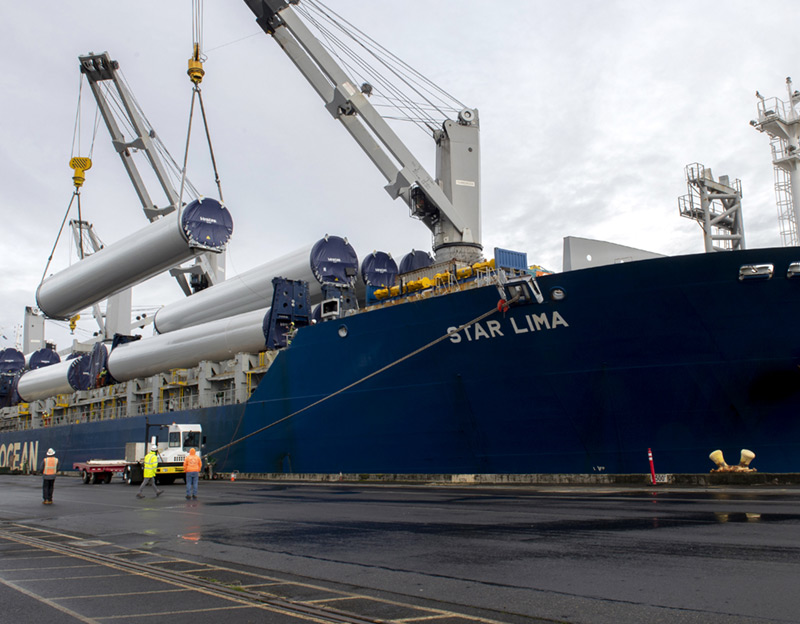
Drybulk
We are capable of handling drybulk and specialty cargo. Two Class I railroad connections help minimize congestion and our terminals are conveniently located with access to interstate highways.
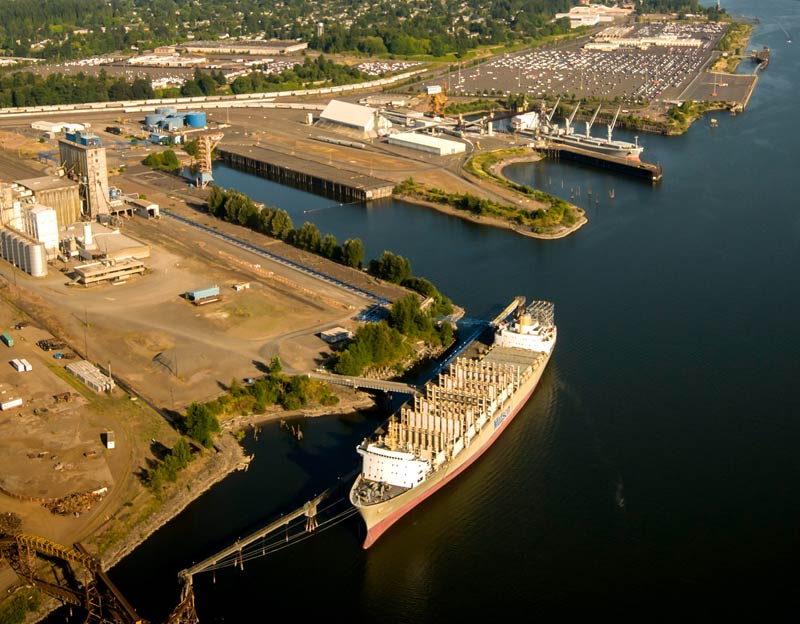
Drybulk at Terminal 4
Terminal 4 is a 262-acre facility that handles drybulk, liquid bulk and Toyota vehicle distribution. It features seven berths, including ro-ro capabilities.
Grain – A Top Export
Oregon wheat, typically soft white wheat grown in the vast expanses of Eastern Oregon and in lush Willamette River valleys, travels from farm to river to the Port of Portland. In 2017, more than 4 million tons of grain was shipped through Portland to feed other parts of the world.
Intermodal Logistics
Portland's marine facilities feature on-dock rail connections and are well-served by efficient and modern main line and short line rail connections. Together with the state of Oregon, city of Portland, tenants and railroads, we have invested heavily in many rail yards, overpasses, new trackage and related projects that have improved capacity, velocity and safety throughout Rivergate Industrial District and the surrounding region.

Portland offers geographical advantages over Pacific Northwest ports because of its access and proximity to major markets as well as the only river-grade interstate highway and rail routes to the interior.

Average time from Portland to interior destinations:
- Destination
- Hours
United States
- Chicago
- 84-104
- Minneapolis
- 84-104
- Detroit
- 108-152
- Kansas City
- 144-164
- New York
- 156-180
Canada
- Calgary
- 72-96
- Edmonton
- 120-144
- Saskatoon
- 144-168
Terminal Facilities
From agriculture to autos, bulk minerals to big machinery, if you are seeking access to international or U.S. markets, we're the partner for you.

Multipurpose, 262-acre facility that features seven ship berths capable of handling a variety of cargoes including forest products, steel and dry bulks.

Terminal 5 and its 159 acres host a rapid-handling grain elevator operated by Columbia Grain and a potash export facility operated by Canpotex.
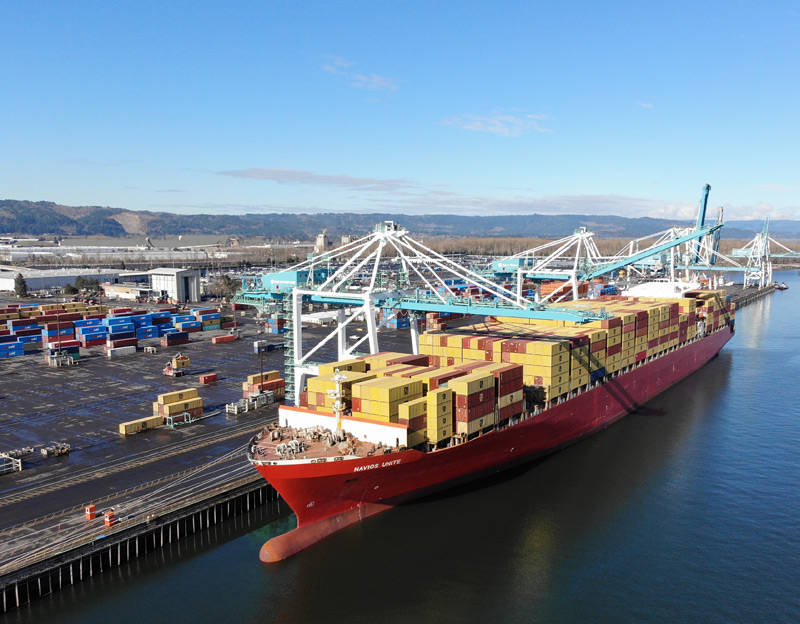
Terminal 6 is a multipurpose, 419-acre facility that features five ship berths and an on-dock rail yard.
